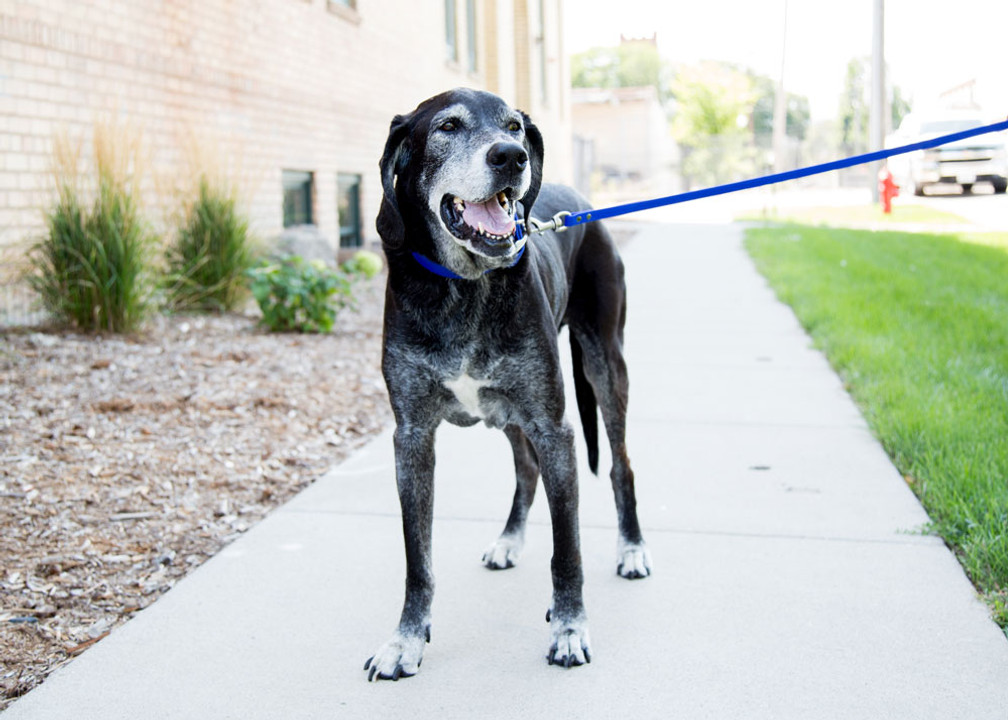5 Tips to Keep Your Senior Dog More Active


If you have a senior dog, you might have noticed he’s having a harder time keeping up while walking or running. Or maybe he’s stiff and sore after playing at the park, chasing a ball or doing agility.
My own Lab mix is 9 years old. He used to be my running buddy, but today we stick to short walks because longer exercise sessions are hard on his joints.
Obviously, dog owners want to keep their senior dogs as fit and active as possible, but sometimes it feels like options are limited.
Here are some ideas to consider for keeping your senior dog active.
Tips to Keep Your Senior Dog More Active
1. Train new tricks!
“Old dogs can absolutely learn new tricks and not only enjoy it, but stand, bend, stretch and move quite a bit in the process,” said Kirsten Hrobsky, director of operations for the pet care provider, The Spot Experience.
She said trick training is a good way to keep older dogs mentally sharp and physically moving.
2. Allow your dog to sniff on walks.
Consistent walks are an excellent form of exercise for senior dogs, Hrobsky said. She recommends you stick to a leisurely pace.
“Allowing your dog to wander and sniff provides much needed olfactory, sight and sound stimulation they wouldn't get snoozing in their dog bed,” she said.
The key is to get your older dog moving consistently, so Hrobsky said three 15-minute “jaunts” throughout the day is often better for an older dog than a single, one-hour walk.
I’ve noticed this is the case with my dog Ace. If he doesn’t move around throughout the day he tends to get stiff, so it’s my job to take him for short walks and keep him active.
If your dog has stiff and sore joints, one option is to try an aspirin-free pain reliever for dogs.
3. Give your dog’s mind a challenge with treat-dispensing toys.
A simple way to keep your older dog’s mind active is to provide a couple of treat-dispensing toys. Your dog will have to work to get the treats or food out of the “puzzle.”
4. Take your dog swimming.
This can be as simple as taking your dog to a pond or small lake or using your own pool if you have one.
Hrobsky said many veterinary or pet rehab centers offer hydrotherapy to assist dogs with recovery from orthopedic surgery. This can also be used to keep a senior dog moving comfortably.
5. Avoid the ‘Weekend Warrior’ routine.
Some of us have a tendency not to exercise our dogs as much as we should during the week, Hrobsky said. Then, on a weekend we might try to make up for it with a 5-mile hike or a lengthy game of fetch.
She warned that this is not a positive way to exercise a senior dog.
“Your dog may want to play or keep up with you, but overexertion like this can lead to arthritis pain or even injury,” she said. “If your dog absolutely loves fetch, try rolling the ball to them from a few feet away instead of launching it.”
She also suggested sticking to short walks and seeking out new routes to keep things interesting if your dog loves exploring.
How do the rest of you keep your older dogs more active?
Want more tips on taking care of a senior dog? Check out these blogs.
Tips For Taking Care Of A Senior Dog
Senior Dogs Still Have A Lots of Life and Love To Give
Explore Popular Articles
-
Dog Obesity & How to Manage It
Apr 21, 2025As a dog owner, you want your furry friend to live a long, happy, and healthy life. However, one gro
-
Choosing the Perfect Dog Harness for Small and Extra Small Dogs
Apr 14, 2025Did you know an ill-fitting harness can turn a fun walk into a stressful ordeal for your small dog?
-
Why Do Dogs Eat Grass?
Apr 07, 2025Dogs are fascinating creatures—loyal companions with quirks that often leave us scratching our




